Impressing people with a big word isn't clever. It's hiding. Getting straight to the point with a simple word, that takes confidence.
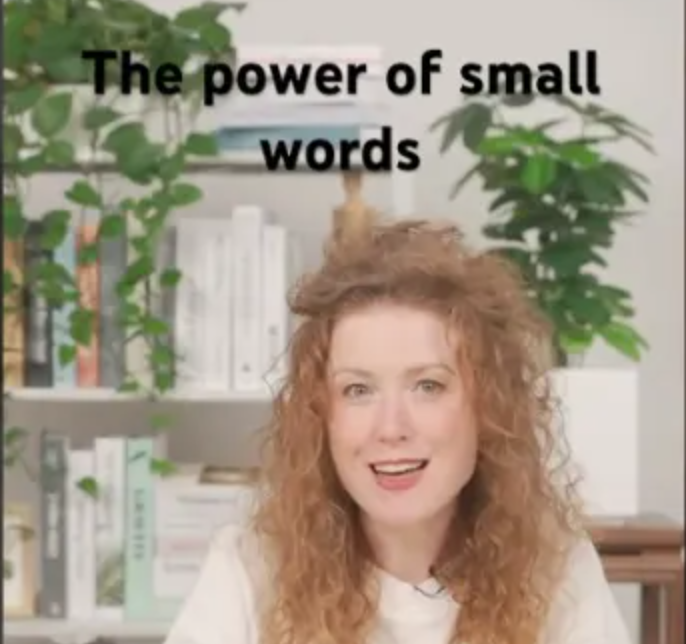
語(yǔ)音講解:
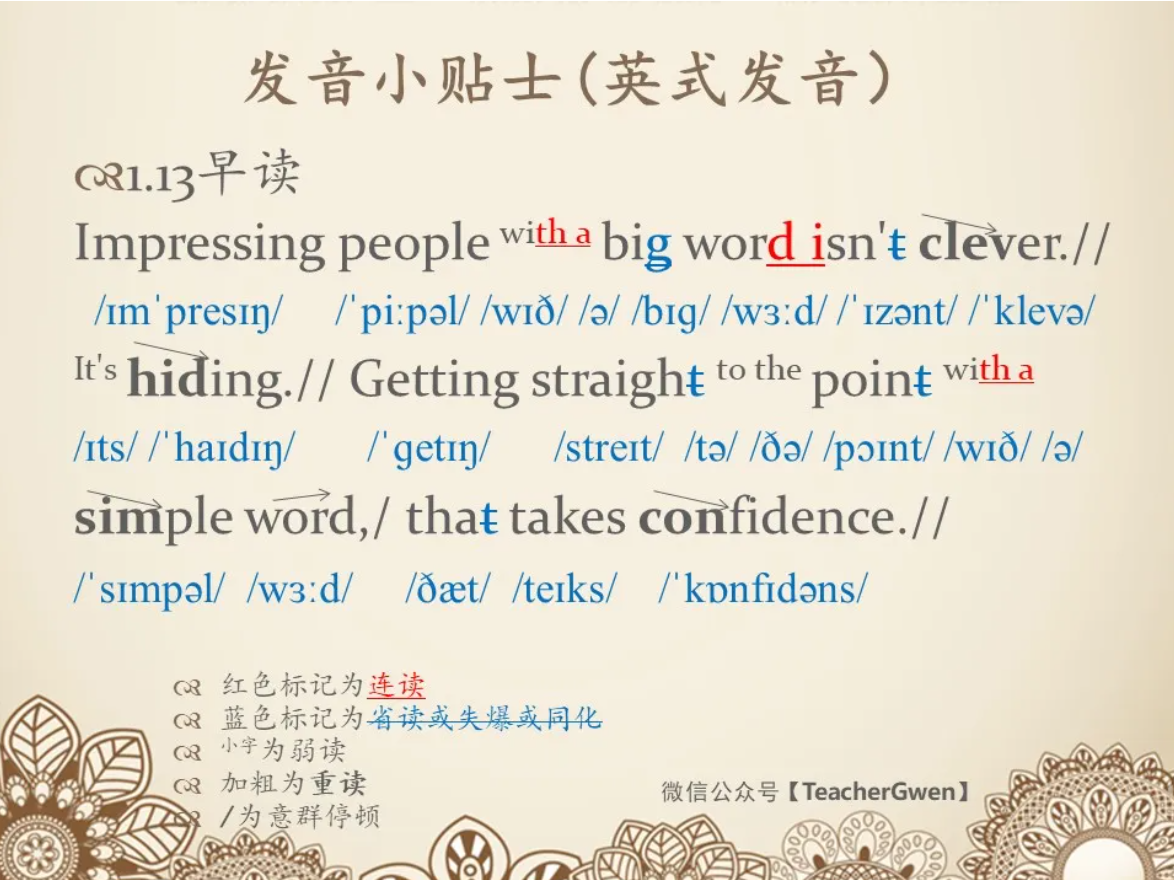
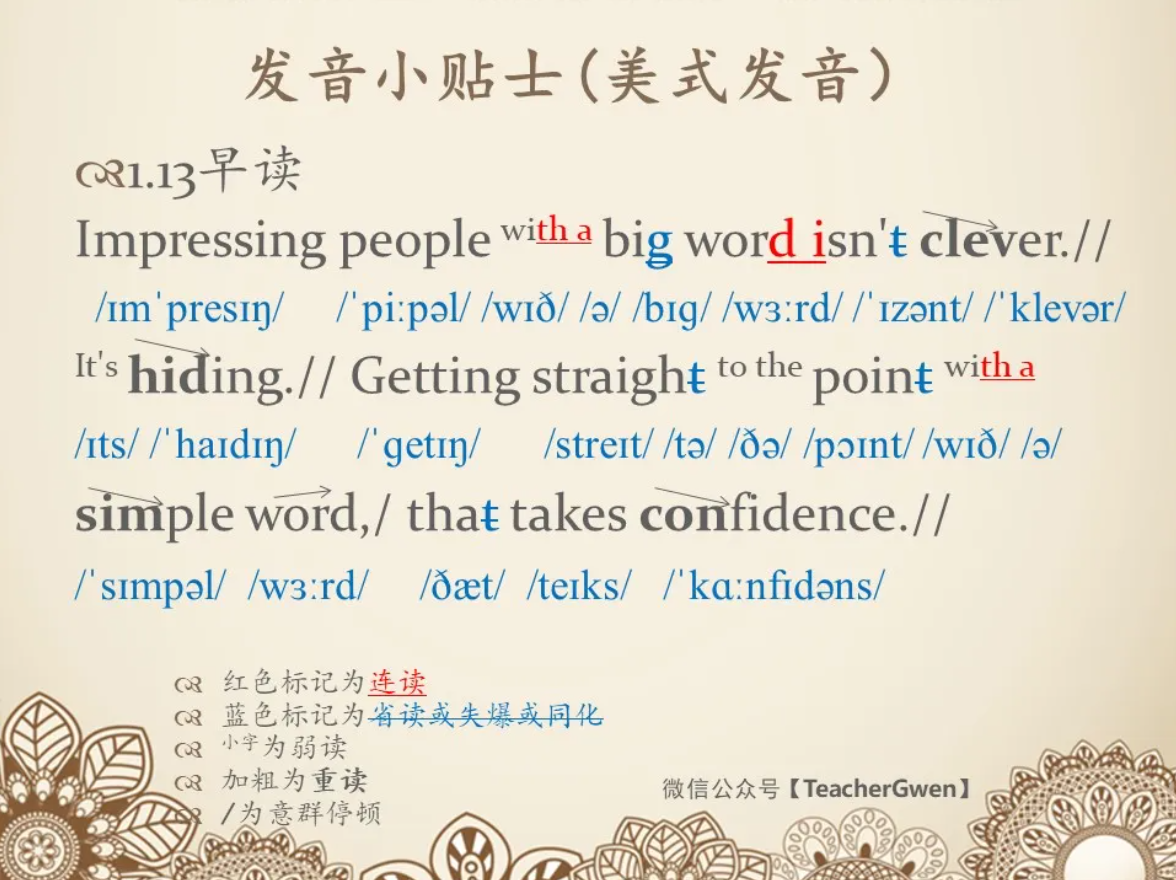
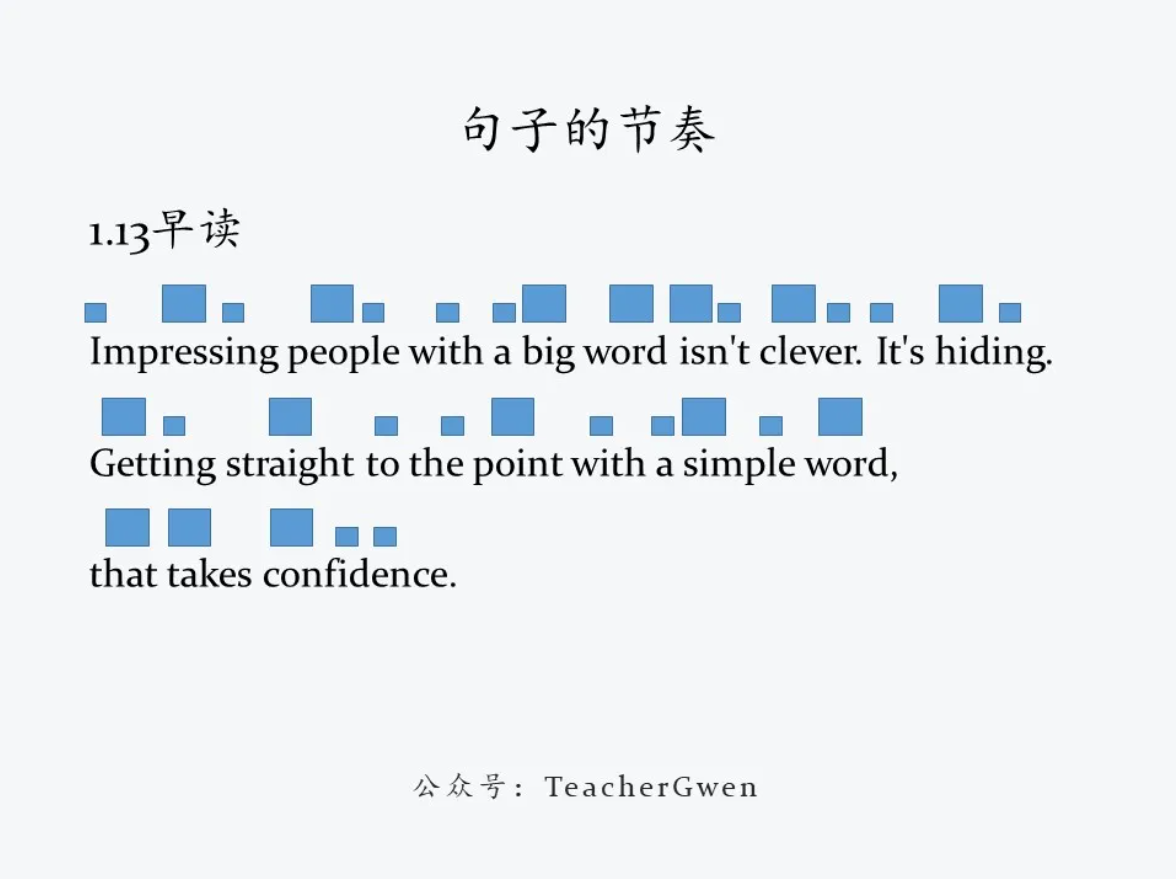
今日發(fā)音練習(xí)重點(diǎn):

言之有物:
1. 語(yǔ)法知識(shí):
V-ing/動(dòng)名詞作主語(yǔ),謂語(yǔ)動(dòng)詞用第三人稱單數(shù)。
*動(dòng)名詞短語(yǔ)作主語(yǔ)時(shí),通常被看作是一個(gè)單數(shù)概念,所以謂語(yǔ)動(dòng)詞一般要用第三人稱單數(shù)形式。
Running is good for your health.
跑步對(duì)你的健康有益。
*與不定式作主語(yǔ)的區(qū)別
→動(dòng)名詞作主語(yǔ)通常表示抽象的、一般性的行為或習(xí)慣。
Reading books broadens our horizons.
讀書(shū)拓寬我們的視野。
這里 “Reading books” 是一種經(jīng)常性的行為。
→不定式作主語(yǔ)往往表示具體的、一次性的動(dòng)作。
To read this book tonight is my plan.
今晚讀這本書(shū)是我的計(jì)劃。
強(qiáng)調(diào)是 “今晚讀這本書(shū)” 這個(gè)具體的動(dòng)作。
2. 詞鏈兒:impress sb with/by...
......給某人留下了深刻的印象
He impressed her with his sincerity.
他的真誠(chéng)打動(dòng)了她。
I was very impressed by one young man at my lectures.
來(lái)上我課的一個(gè)年輕人讓我很欽佩。
3. 詞匯:hide v. 隱藏,掩蓋
* It's hiding. 可理解為 “(用大詞給人留印象)這是在藏拙”,暗指這么做的人其實(shí)是缺乏底氣,試圖用華麗辭藻掩蓋自己可能在清晰表意、精準(zhǔn)溝通方面的不足。
4. 詞鏈兒:get straight to the point (with...)
開(kāi)門見(jiàn)山/直奔主題
I don't like people who waste time. I prefer to get straight to the point when I talk to them.
我不喜歡浪費(fèi)時(shí)間的人。當(dāng)我和他們交談時(shí),我更喜歡直截了當(dāng)?shù)厍腥胍c(diǎn)。
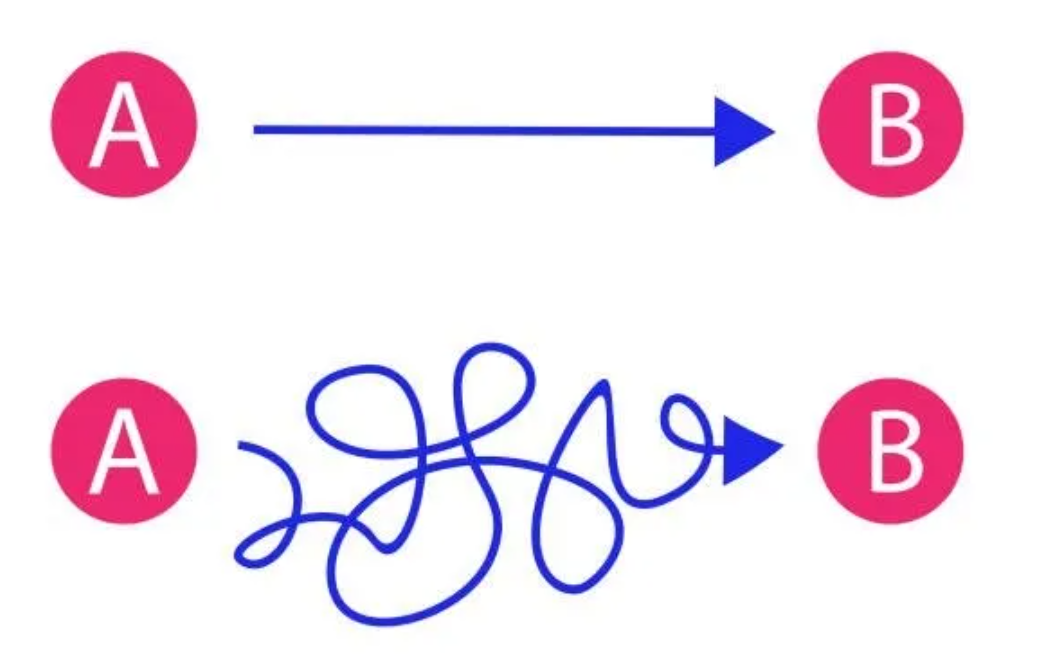
I'll get straight to the point. I am emotional. I do bring it into my work.
我會(huì)直切重點(diǎn)。我是感情用事。我確實(shí)這樣工作。

影視片段《美劇 危機(jī)邊緣 第一季》
Forgive me for getting straight to the point. I'm a great admirer of your work.
我就開(kāi)門見(jiàn)山了。我非常崇拜你的杰作。

影視片段《美劇 哥譚 第二季》
5. 詞鏈兒:That takes confidence.
that 指代 Getting straight to the point with a simple word
... takes confidence/courage
......需要自信/勇氣
活學(xué)活用:
請(qǐng)用 get straight to the point 隨意造句
上海日?qǐng)?bào)社 TheBrief
A quick tip from a columnist.
Simple English, stronger connections.
最簡(jiǎn)單的話語(yǔ)有時(shí)候才最能打動(dòng)人心。
關(guān)注微信號(hào):TeacherGwen











